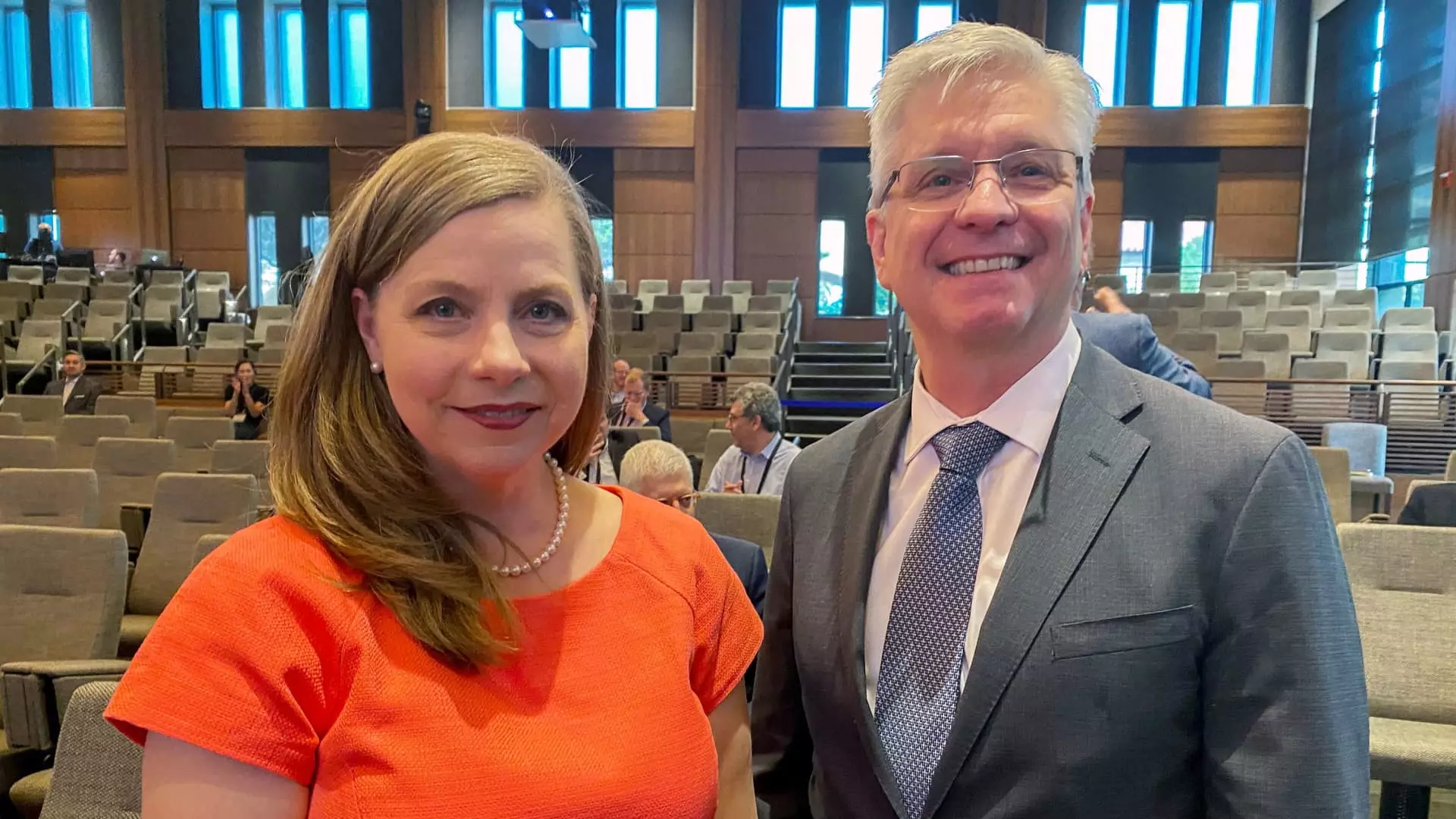The recent announcement of Michael Barr’s intent to resign as the Federal Reserve’s Vice Chair for Supervision has ignited a wave of speculation concerning the future of regulation in the U.S. banking sector. Barr’s early exit, which is expected to happen next month, effectively clears the path for a candidate more aligned with the industry’s interests—raising questions about the shifting landscape of financial oversight in a post-Trump administration.
Barr’s decision to step down is not merely a personal choice but an acknowledgement of the political currents that have been swirling around him. Initially, Barr seemed committed to his supervisory role, yet the ominous prospect of a prolonged legal conflict with the Trump administration led him to reconsider. This duality emphasizes how regulatory environments are often shaped as much by political considerations as by economic rationale. The departure now allows the Trump administration to select a successor who may foster a less stringent regulatory atmosphere, a move that is likely to be well received by major banking entities eager for less oversight.
In the immediate aftermath of Barr’s resignation announcement, U.S. bank stocks surged, illuminating the market’s optimistic outlook for deregulation. Financial stocks have historically thrived in environments perceived to be favorable for business, and the prospects of a more relaxed regulatory atmosphere have sparked excitement among investors. Analysts suggest that a more industry-friendly office at the Federal Reserve could lead to increased merger activity and less stringent capital requirements, both of which are seen as catalysts for growth in the banking sector.
Indeed, the ascension of candidates like Michelle Bowman, who are rumored to be at the forefront of Trump’s pick for Barr’s role, suggests a potential pivot towards what may be termed “industry-friendly reforms.” Bowman has publicly criticized some of Barr’s initiatives aimed at enforcing stricter capital holdings, particularly the Basel III Endgame proposal. This initiative was initially designed to ensure that banks maintain sufficient capital buffers but was met with significant pushback from industry leaders.
With an increasing likelihood that Bowman will step into the position vacated by Barr, her past roles as a community banker and state bank commissioner provide her with a unique lens through which to assess banking regulations. As someone deeply embedded in the fabric of the banking system, her insights could lead to reforms that prioritize both the sustainability of financial institutions and their competitiveness in the global market.
Bowman’s critique of the Basel III Endgame raises the possibility of a recalibration of how capital requirements are formulated in the United States. Industry experts anticipate that under her guidance, the final version of Basel III could emerge as more lenient compared to Barr’s original plans. By revisiting these proposals, Bowman may champion a regulatory framework that is more adaptable to the U.S. banking landscape, ensuring that banks aren’t just compliant but also able to leverage their capital for growth opportunities.
In conjunction with Barr’s resignation, financial analysts are keenly observing who will fill the roles at key regulatory agencies, such as the Federal Deposit Insurance Corporation (FDIC) and the Office of the Comptroller of the Currency (OCC). These appointments can further define the regulatory climate in which banks operate. Without a doubt, the regulatory landscape is shifting, and the choices made by the Trump administration will resonate through market dynamics for years to come.
As Bowman potentially steers the Vice Chair role, she is faced with the task of balancing industry interests with the public’s need for oversight. The crossroads of these demands present her with both opportunities and challenges that will define her legacy in office.
While the market rejoices at the prospect of a deregulated environment, it is crucial to recognize the potential risks involved with reduced oversight. Financial crises often arise from a lack of sufficient regulation, and a thorough analysis must consider how far the pendulum can swing before jeopardizing the stability that proper regulations provide. Hence, the implications of Barr’s departure should serve as a clarion call for careful consideration of policies that govern banking practices and the protection of consumers and investors alike.
Barr’s resignation opens a critical chapter in U.S. banking regulation, one that may well become a defining aspect of the Trump administration’s legacy. As the reshaping of regulatory perspectives takes place, the financial world watches closely, recognizing that this balance between freedom and oversight will require astute navigation in the months and years ahead.


Leave a Reply